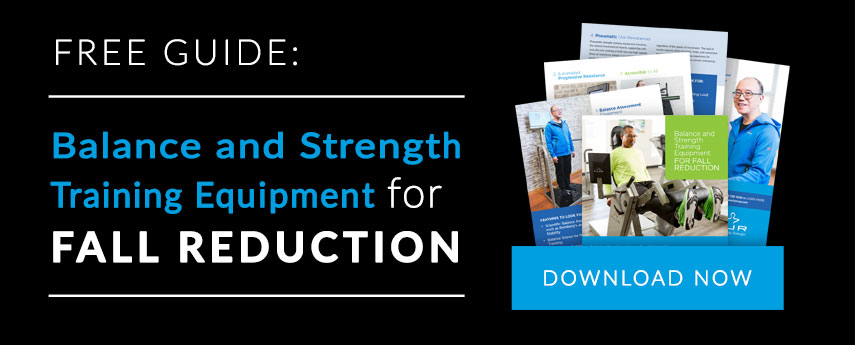Evidence for Preventing Diminished Cognitive Functioning as We Age
Dr. Rob Winningham, Ph.D. was our recent guest presenter for an educational webinar focused on the effect that diminished executive functioning has on our quality of life as we age and what research tells us to do about it.
Dr. Winningham received his Ph.D. in Neuroscience from Baylor University and has 25 years of experience researching human memory and has largely focused on older adults and ways to enhance their mental functioning and quality of life. He creates brain stimulation activities that have been used in thousands of retirement communities and rehabilitation facilities including Dr. Rob’s Cognitive Connections with Masterpiece Living. He has trained thousands of professionals to offer high-quality cognitive rehabilitation and therapy programs.
The following information was derived from this very important presentation.
Executive Functioning is Key
There are several different factors that affect brain health and our chances of developing dementia as we age, but the largest body of research is currently focused on the effect of exercise on cognition – and for good reason. Physical exercise is one of the most powerful things we can do to not only stop cognitive declines as we age but actually reverse them.
For care professionals working with older adults, a lot of the information we’re going to share with you in this post will be useful as you lobby decision-makers about updating exercise equipment and expanding your wellness programs. But, a lot of this information can also be helpful in your efforts to motivate more seniors to participate in your wellness programs and make exercise a higher priority. For many people, simply learning about how exercise impacts cognitive ability is a huge motivator.
Before we dive into the research, let’s define what we mean by “Executive Functioning”.
Executive Functioning includes:
- The ability to pay attention and concentrate. This includes the ability to sustain attention and pay attention to the right things.
- Cognitive inhibition. Cognitive inhibition allows us to control our own distractibility. An impaired ability to focus while blocking out distractions is common in older adults and in people with a traumatic brain injury.
- Behavioral (or response) inhibition. This gives us the ability to control the way we respond to situations.
- Problem-solving.
- Reasoning.
- Planning.
- Working (or short-term) memory.
Our current level of Executive Functioning can predict:
- Walking speed
- Chance of falling
- Driving safety
- The ability to care for oneself
- The ability to live independently
- The ability to make new memories
It’s not hard to see the impact that executive functioning has on our quality of life.
When it comes to our chances of developing dementia later in life, 50% of our risk factors come from genetics and are out of our control. But, that means that 50% is within our control. And 50% is a lot to work with.
Over the past couple of decades, research has shed a lot of light on the things we can do to reduce our chances of developing dementia. Here are a few of the factors that impact our risk:
- Physical exercise. Consistent aerobic exercise and resistance training is the best thing you can do to reduce your chance of developing from dementia.
- Cognitive stimulation and ongoing education.
- Stress and neuroticism. Neuroticism is a personality trait that is prone to excessive stress and worry and it’s the best predictor of people who develop dementia. One reason for this impact might be that stress and worry cause the body to release cortisone which damages our cells.
- Social support and engagement. Lonely adults are 200% more likely to develop dementia. An interesting thing about social support and loneliness is that it’s very subjective. If you believe you have a good social support network, you’ll receive all the physical and mental health benefits of having a good social support network. Conversely, if you believe you are lonely, you’ll reap the negative consequences.
- Sleep. One night of poor sleep reduces memory by about 12%, and the detrimental effect continues to build over days of lost sleep. This is particularly important for care professionals who are working in rehab centers or in skilled nursing situations where patients receive 24-hour care and are woken up several times each night. Sleep deprivation leads to delirium, and every bout of delirium increases the risk of dementia.
- Diabetes and insulin resistance. Diabetes wreaks havoc on executive functioning and threatens one’s ability to live independently.
- Yoga and Tai Chi. Research shows that both yoga and tai chi can significantly improve cognitive ability, attention, learning and memory, language, emotion and perception, and execution in healthy adults. More about that later.
- Mindfulness training and meditation. Studies show that mindfulness mediation can create a significant improvement in executive functioning.
Dementia prevalence is declining!
Dementia rates among people age 65 and older have plummeted by 25% over the past two decades, from 8.3% to 6.2%.
When looking at these numbers, it’s important to understand the difference between prevalence and incidence. Prevalence is the proportion of the population affected by a condition. Incidence is the number of cases. For example, let’s say that a recent report announced that “there are over 5 million Americans with Alzheimer’s, and by the year 2030, there will be as many as 10 million.” Taken at face value, you might think that Alzheimer’s was on the rise. However, 72 million baby boomers are turning 72 years of age at a rate of 1 every 7 seconds. So, over the next 10-15 years, incident numbers are going to go up. But, if you look at the proportion of older adults with dementia, the number is plummeting. This is very good news.
Why is the prevalence of dementia dropping? Possible reasons include improved ability to control cardiovascular risk factors such as cholesterol and blood pressure, better education and more cognitive stimulation, and a greater awareness of the importance of physical exercise.
Empirical evidence for memory enhancement.
Participants in 7 different communities were tested on several different memory and mental tests. The average age was 82 and they were all living in an assisted living community. Half of the participants engaged in a cognitive enhancement program and the other half (the control group) did not. Three months later all participants were retested on the same tests and changes analyzed, finding that the cognitive enhancement intervention group had a 15% improvement in memory. That’s what’s possible!
Empirical Evidence for Memory Enhancement.
“If older adults can maintain their cognitive ability, they will require less care and possibly delay or even eliminate the need to go to a nursing home. Cognitively stimulating activities may also postpone symptoms of dementia, which could also delay the need for more intensive care.
– Dr. Winningham, Journal of Mental Health and Aging
Research has shown that when we are able to affect improvements in executive functioning, the improvement generalizes to the things that were never trained. For example, people who work on Sudoku puzzles don’t only improve their ability to do Sudoku. They also improve their ability to make new memories and remember things that are important to their day, like when to take their medication. Improvements in executive functioning transfers – generalize to other real-world situations.
(Dr. Rob offers a great resource for simplified Sudoku puzzles at www.robwinningham.com. Click on “Crossword Puzzles are not as good as Sudoku puzzles…” to download mini-Sudoku’s and get access to hundreds of 9x9 puzzles.)
Executive functioning can be improved with exercise.
An 18-study meta-analyses on the effects of exercise on cognition found that, on average, exercise programs lead to a .5 standard deviation increase in cognitive abilities. One study even showed significant improvement in attention from participating 6-month walking program.
Even if there is no intervention, one study found that older adults (mean age of 77) who ranked in the top third for the amount of physical exercise they engaged in were 61% less likely to get dementia.
Most forms of exercise have a positive impact on executive functioning, but here are a few of the most effective:
- Cardio exercises that involve dual-tasking – such as working out on the Cyber Cycle– are particularly impactful on brain health. Cyber Cyclists experienced a 23% reduction in progression to mild cognitive impairment compared to traditional exercises. (American Journal of Preventive Medicine)
- Yoga has been shown to increase attention and focus, reduce stress, and increase cognitive functioning in people of all ages and ability levels.
- Tai Chi. Tai Chi can benefit both mental and physical health. A large meta-analysis showed that Tai Chi can “significantly improve the majority of outcomes of global cognitive ability, attention, learning, and memory, language, emotion and perception, and execution in healthy adults.”
- High-Intensity Interval Training (HIT). HIIT training involves short bursts of high-intensity exercise followed by short rest periods. Research shows that HIIT training improves executive functioning and even changes genetic expression.
- Dual Tasking. Dual tasking is performing a physical and cognitive exercise at the same time. Dual tasking improves cognitive ability, improves the ability to do activities of daily living (bathing, grooming, toileting, dressing), and improved mood.
- Strength training. One of the most important studies on brain health in the past decade showed that once-a-week and twice-a-week resistance training sessions over 12 months led to major improvements in older adults’ cognition and attention. Participants who trained for 20-minutes once a week experienced an 11% improvement. Those who trained for 20-minutes twice a week experienced a 13% improvement.
Interestingly, the improvements in cognitive functioning derived from strength training are independent of those derived from aerobic exercise. So, if you engage in both forms of exercise, you will receive double the benefit.
Resistance Training can alter the course of cognitive impairment.
According to an article published in the New England Journal of Medicine, 16% of people with Mild Cognitive Impairment (MCI) will develop dementia this year, and 80% will develop it within six years. But, twice a week resistance training can change the curve for people who are already experiencing the early stages of dementia. This is huge! If we had a drug that could do that, it would be headline news. We don’t have the drug, but we have the answer.
Resistance training doesn’t require a gym or expensive equipment. If you have a chair, resistance bands, and some free weights, you can engage in resistance training. Even those with very limited mobility can reap cognitive improvements from seated flexibility exercises and seated strength building exercises.
Let’s Deliver What We Promise: A High Quality of Life
We know that physical exercise can significantly improve the quality of life for older adults, which is why it is imperative that communities invest in high-quality cognitive, social, and physical exercise programs. High-quality physical exercise programs can:
- Improve cognition and memory
- Improve ability to do activities of daily living
- Help people maintain their independence
- Reduce the need to move to a higher level of care
- Improve mobility
- Reduce falls
- Improve driving ability in older adults
- Can help marketing efforts.
Success begets success. Communities that are able to attract vibrant, active residents today will attract more active vibrant residents tomorrow. If you work with Seniors and are looking for options that will include their health and quality of life, I invite you to contact us. Whether you only have the space and budget for one multi-purpose machine or a full circuit, we would love to talk with you about designing a fitness strategy with a high ROI for everyone in your community.






